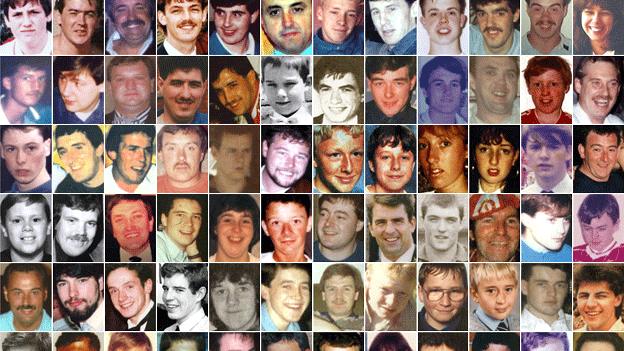Hillsborough officer says fans 'kicked and verbally abused' him
- Published
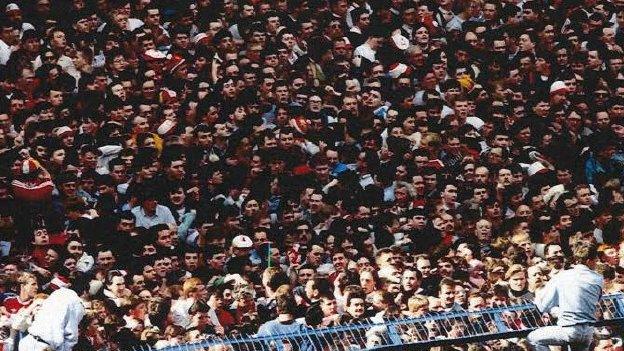
Kenneth Jones went on to be a police match commander at Hillsborough
A police sergeant who went to the Hillsborough stadium as the disaster unfolded claimed he was "kicked and verbally abused" by fans, an inquests jury heard.
Kenneth Jones claimed fans' "aggressive and selfish behaviour" meant rescue efforts had to be "depleted".
He has been giving evidence to the new Hillsborough inquests in Warrington.
The jury has also heard him describe police inside the ground as appearing "confused" and "dazed".
On 15 April 1989, 96 Liverpool fans were fatally crushed at the FA Cup semi-final against Nottingham Forest.
Mr Jones, who was later promoted to chief superintendent and went on to be a match commander at the stadium, also said he believed there was not enough medical provision at the ground.
'Mass confusion'
The jury also heard from former Liverpool FC chief executive Peter Robinson, who spoke of his anger at the Football Association's refusal to change the end of the stadium allocated to his club's supporters.
The court heard how Mr Robinson, in a statement from 1998, recalled that match commander Ch Supt David Duckenfield "blamed Liverpool fans" for the disaster.
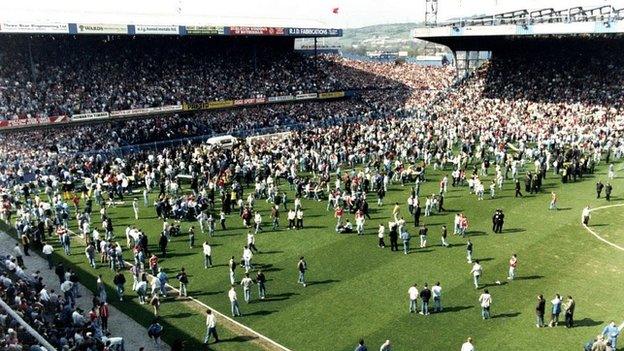
Mr Jones said he realised "within minutes" it was not a pitch invasion
On the day of the match, Mr Jones was in the canteen at West Bar police station in Sheffield, the jury heard.
Once a call for "operational support" was made over the police radio, the canteen cleared "in seconds", he said.
Arriving at the pitch, he saw a "thin police cordon" and "mass confusion".
"It was not a committed group of officers with a central purpose - they were confused, some of them looked dazed," he told the inquests.
He told Christina Lambert QC, counsel to the inquests, he realised "within minutes" it was not a pitch invasion.
Mr Jones said he then went to the stadium's gymnasium, being used as a mortuary, where "the serious nature of what had occurred" dawned on him.
He agreed that by 15:10 BST that day, it was "obvious" that a "major incident" should have been declared.
'Completely forgotten' statement
The jury was also shown a handwritten response, signed by Mr Jones on April 17, 1989, to an internal South Yorkshire Police questionnaire, which all officers in the force had to complete after the disaster.
In it he wrote that while he tried unsuccessfully to resuscitate a dead fan at the Leppings Lane end of the pitch, he was "kicked and verbally abused".
"The aggressive and selfish behaviour of the released fans obliged us to deplete the rescue effort for fear of a greater tragedy developing at the Notts end had a charge taken place," he wrote.
"After a few minutes I returned to the goal in front of Leppings Lane... Fans were still charging around, attacking and abusing officers who were vainly trying to revive and assist injured people."
After reading his recollections to the jury, Mr Jones said his questionnaire response was not shown to him during his interview with Operation Resolve, the police investigation into the disaster.
"I had completely forgotten it," he said.
Mr Jones later became a chief superintendent at South Yorkshire Police, and chief constable of Sussex Police.
Until 2009 he was the president of the Association of Chief Police Officers.
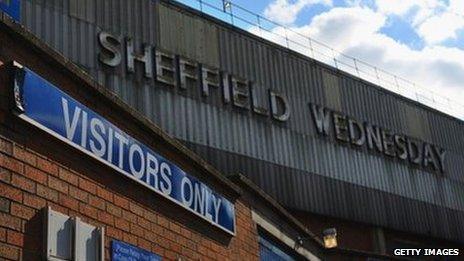
The former chief executive of Liverpool asked the Football Association to change the end of the stadium allocated to his club's supporters.
Mr Robinson told the jury he was in the directors' box at Hillsborough when the match was called off.
He said he went to the pitch, which was "a scene of mayhem", but did not see fans abusing police.
"The fans were too concerned with trying to help out their injured," he said.
He said any "taunting" was coming from the Nottingham Forest end.
'It was unjust'
After being on the pitch, Mr Robinson was invited to a meeting with Ch Supt Duckenfield, the FA and the chairman of Nottingham Forest to discuss what had happened.
In a statement written in October 1998, he wrote that Ch Supt Duckenfield "clearly blamed the disaster on Liverpool supporters".
In court Mr Robinson also recalled how he "protested" to the FA about the choice of Hillsborough as match venue and the decision to allocate Liverpool the Leppings Lane end.
He told the jury: "I felt it was unjust that Nottingham Forest, who had an average gate of something like 17,000 less than we had, were getting 4,500 more tickets."
He said the FA's competition secretary, Steven Clark, told him the decision would not be changed, which made him "very angry".
The inquests continue.
- Published16 July 2014

- Published14 July 2014

- Published10 July 2014

- Published8 July 2014
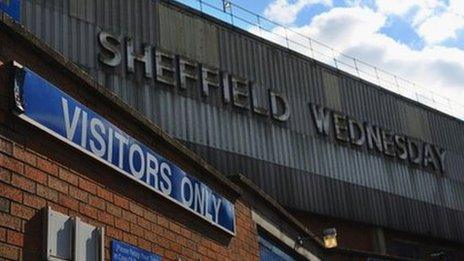
- Published3 July 2014
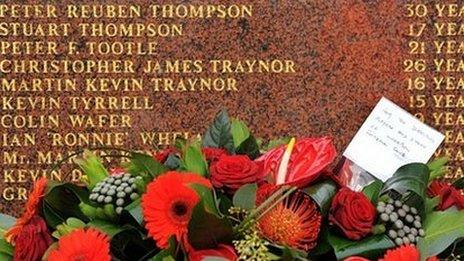
- Published27 June 2014

- Published23 June 2014

- Published17 June 2014
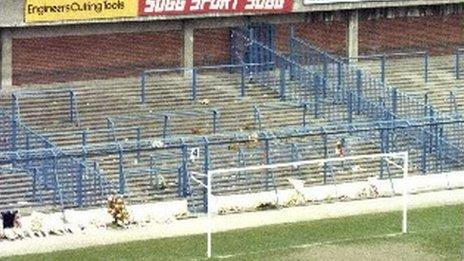
- Published16 June 2014
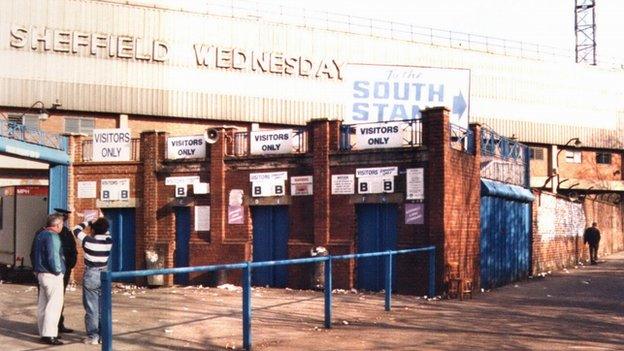
- Published13 June 2014

- Published11 June 2014
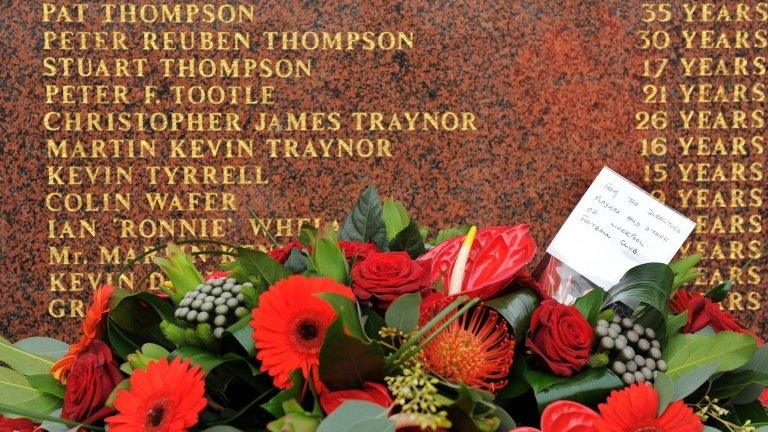
- Published10 June 2014

- Published9 June 2014

- Published4 June 2014

- Published3 June 2014
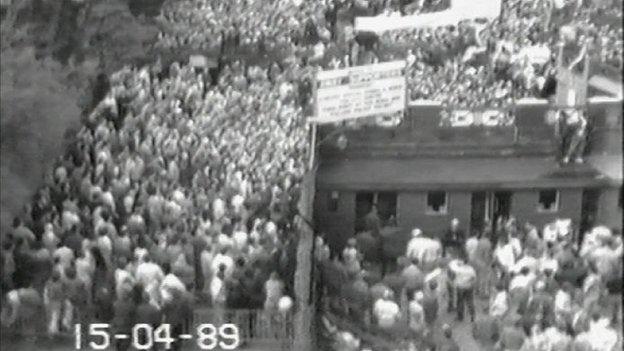
- Published2 June 2014

- Published30 May 2014

- Published29 May 2014
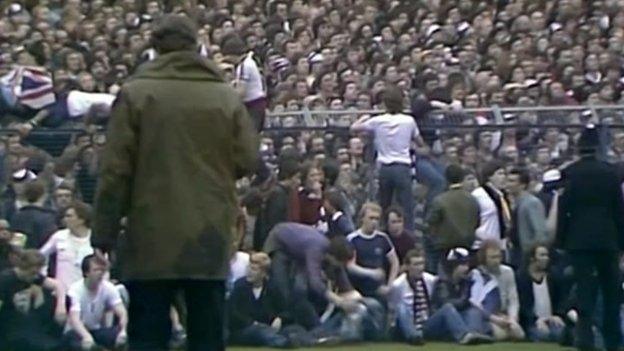
- Published29 May 2014
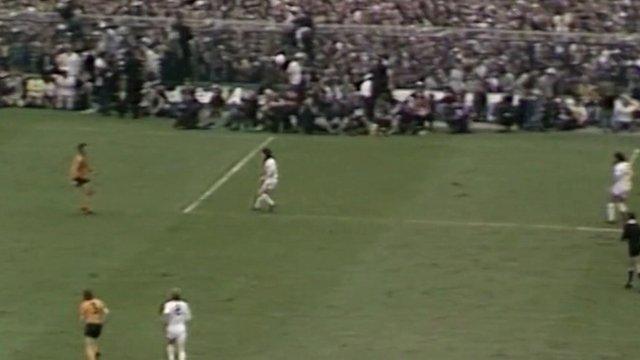
- Published28 May 2014

- Published27 May 2014

- Published23 May 2014
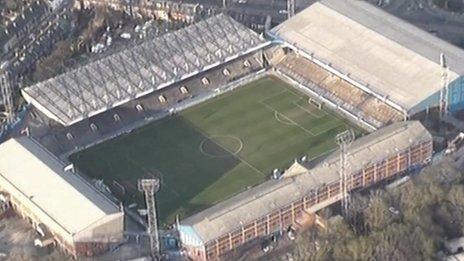
- Published21 May 2014
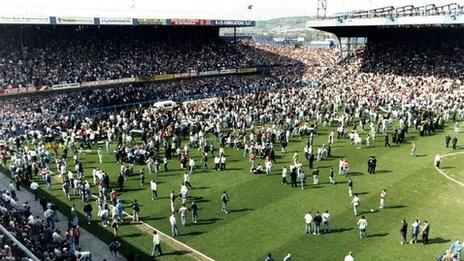
- Published20 May 2014

- Published31 March 2014
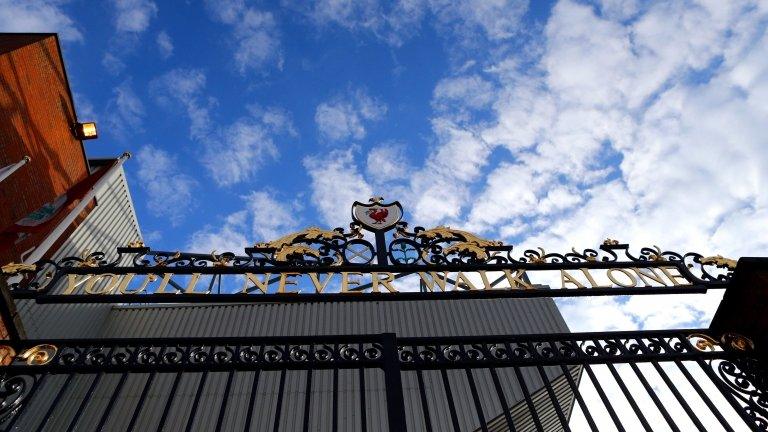
- Published26 April 2016
